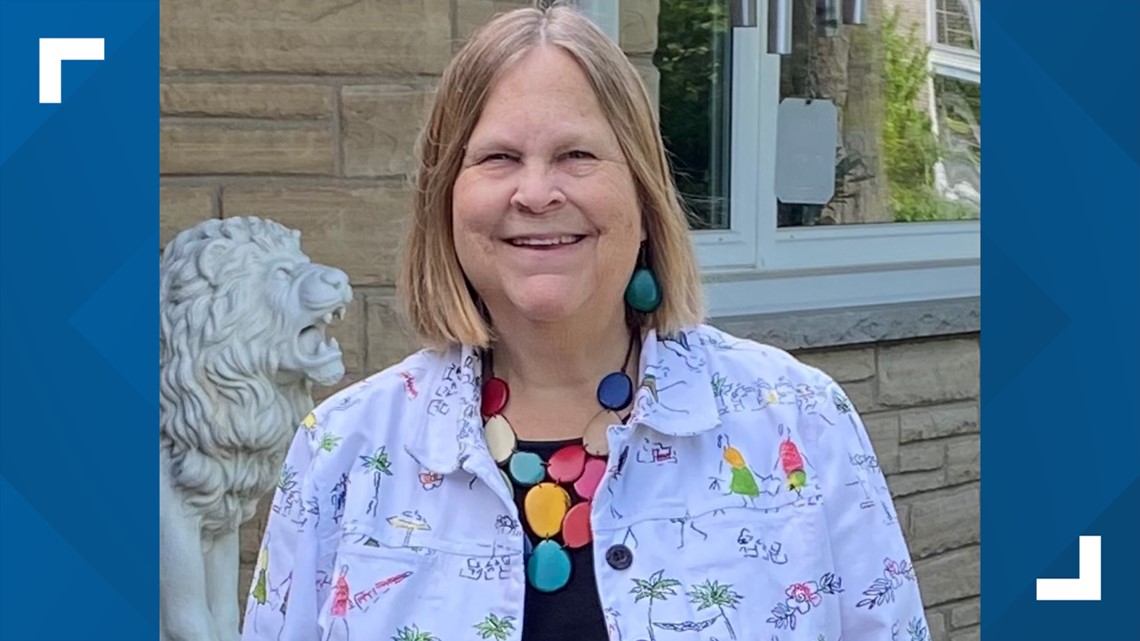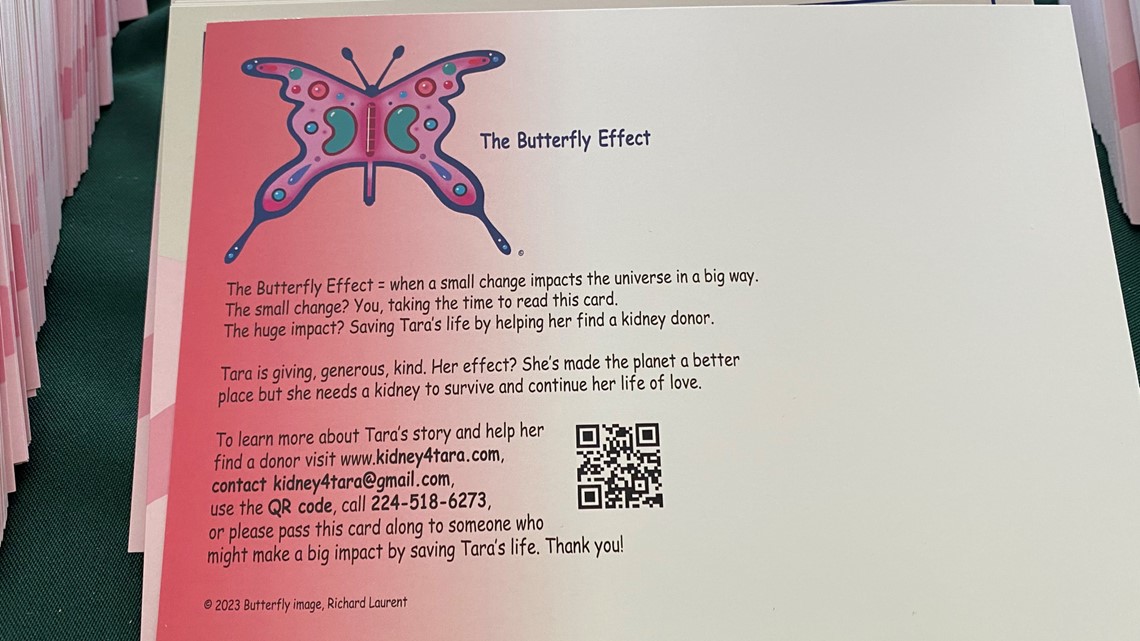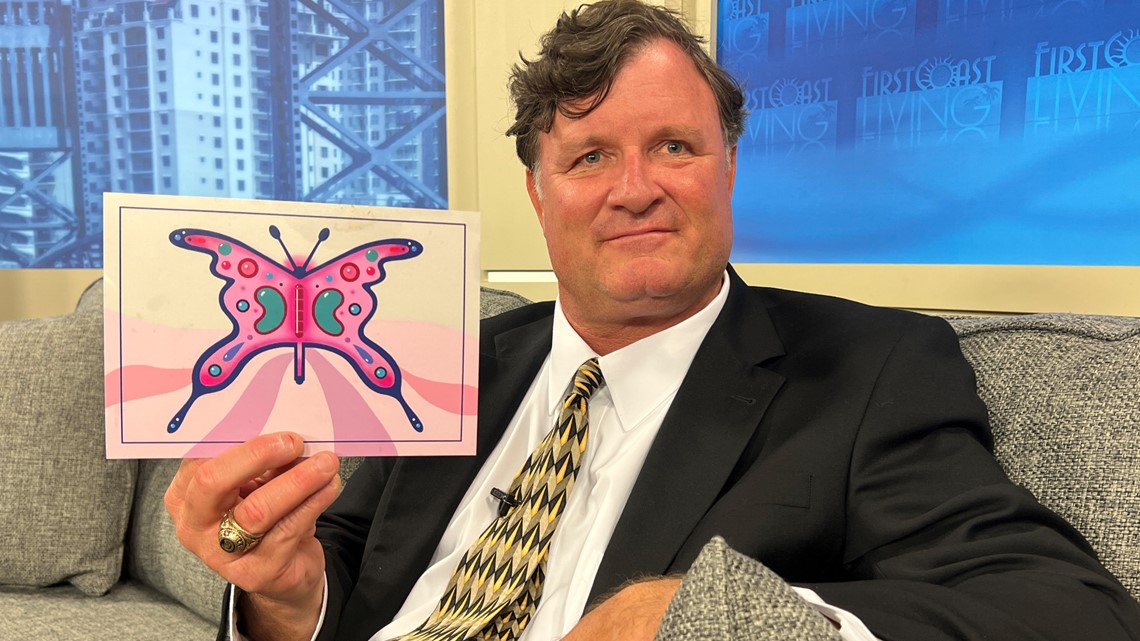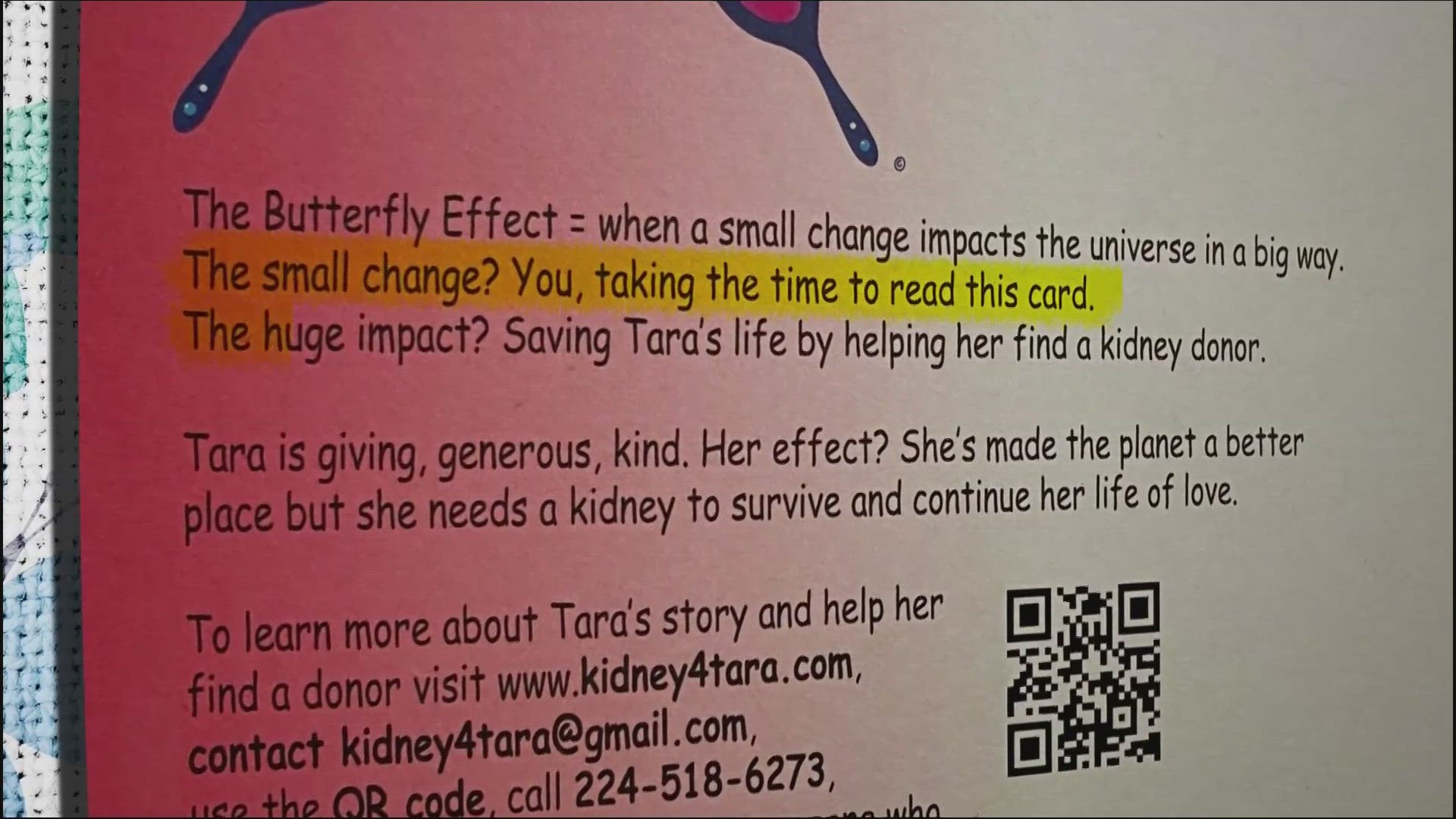JACKSONVILLE, Fla. — Right now, more than 100,000 people in the U.S. are waiting for an organ donation. Tara Mano is one of them, but she’s not just waiting, she’s taking extraordinary steps to find the perfect match.
“Nobody has done what I’ve done that I’m aware of, so I think it’s pretty creative,” the 69-year-old said. “You know, kind of kooky may be, but what the heck.”
Mano, who lives near Chicago, designed cards with the help of her friends that share her need for a kidney. She was diagnosed with kidney disease in 2019 and it's now Stage 4.
“Emotionally, at times, it's hard," she explained. "You know, I don't know that anyone can really understand unless they've had something which has threatened their life. This definitely threatens my life."
If she doesn’t get a kidney soon she knows her kidneys could fail.


“And then I would be in dialysis potentially or indicate that I did not want to be on dialysis, in which case you go under hospice care,” Mano said.
Right now there are more than 88,000 people on the national transplant waiting list in need of a kidney.
Dr. Shennen Mao, a transplant surgeon at Mayo Clinic in Jacksonville says the average wait time on the First Coast is three to five years. It’s time many don’t have. On average, 17 people die every day waiting for an organ transplant, according to The Health Resources & Services Administration.
“Living donors are the heroes in this process. They're the people that can really take and transform someone else's life,” says Mao.
Mao says living donor kidneys tend to last longer than kidneys from deceased donors.
“The donation process is an overnight stay in the hospital, typically a two-to-three-hour laparoscopic surgery, and then a recovery period of somewhere around six weeks,” Mao said. “Our living donors have gone on to do incredible feats. Living donors have climbed mountains. In fact, there was a team that went and climbed Everest within the last year.”
Mano and her friends contacted a marketing firm to help them spread the word about her need for a kidney.
“Since Mayo is a big one for me, Mayo Jacksonville, we went for selection criteria, like an age group, and people that were either charitably oriented and/or healthy, health club-oriented people,” Mano explained.
And their effort is getting results. It caught the attention of John Hughes who lives in Jacksonville.


“It came in the mail addressed to me, and you know, it's got her email on there and her phone number. The first thing I did was wrote her email and said I don't know you but let's start with my blood type,” Hughes said.
Inspired by his former coworker who donated a kidney to a friend years ago, he offered to donate his kidney to help Mano, a complete stranger.
“Typically, I would have probably thrown this in the garbage, but for some reason, I just decided I was going to read through it because it looked like solicitation that I probably wasn't going to have any interest in, like so many other things come in the mail,” Hughes said. “But this one I just picked up and read it and I remember my friend.”


While Hughes is not a blood match and is still very early in the evaluation process at Mayo Clinic to become a donor, he could help save her life through what’s called a kidney paired exchange.
“Someone offers a kidney, on your behalf, your kidney goes to someone else that can receive it, your donors kidney, I should say, goes to someone else that can receive it, and then their kidney would come back to you,” Mao explained. “That chain could be as simple as two people swapping an X, we've had chains much longer than that. Eight, ten, twelve patients or longer.”
It's truly a gift of life that could not only help Tara but many others.
“I pray for it every day,” Mano said. “I'm not ready to, you know, wrap it up and say goodnight quite yet. So, I'm just hoping for the chance, you know, to be able to, to continue to do some really great things.”
If you’re interested in becoming a living donor, you have to be 18 and generally healthy. If you want to donate a kidney to Tara, you can start the process by clicking here to filling out a questionnaire on Mayo Clinic’s website.

